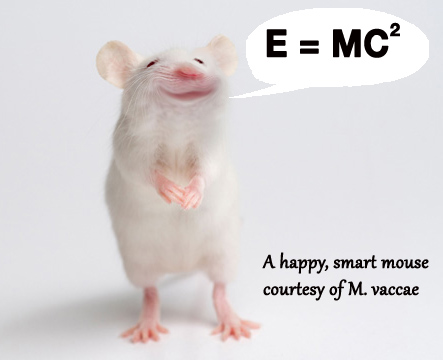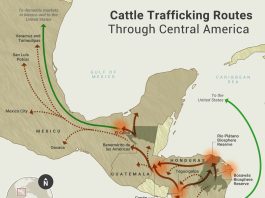James Matthew Craighead asked this question: “Is grass fed the worst thing that happened to agriculture?” Don Ashford, one of On Pasture’s Writers in Residence shares these thoughts.
No, absolutely no.
What is Grassfed?
If I understand the labeling requirements correctly, any animal that has eaten grass anytime in its life can be labeled grass fed. Grass finished means that the animal has only eaten grass its entire life. It is possible to feed corn that has all of the starch removed and be classified as grass fed. I guess this is brewer grain. I can tell you stories about this stuff. (I am sure that someone will correct me on any of this if I have it wrong).
 As in any business of selling to the public there will always be folks who game the system. There are outfits out there that are buying calves from the sale barn and turning them out on pasture for 90 days or so and selling them as grass fed. They are not lying, but what they are doing is misleading the consumers. But if every animal that has ever eaten grass can be labeled grass fed they are doing neither. There is nothing wrong with their product it is just that the consumers are not getting what in most cases they believe they are getting. And rather than getting the commodity price for these calves these outfits are getting whatever the market is for grass fed, which is substantially higher.
As in any business of selling to the public there will always be folks who game the system. There are outfits out there that are buying calves from the sale barn and turning them out on pasture for 90 days or so and selling them as grass fed. They are not lying, but what they are doing is misleading the consumers. But if every animal that has ever eaten grass can be labeled grass fed they are doing neither. There is nothing wrong with their product it is just that the consumers are not getting what in most cases they believe they are getting. And rather than getting the commodity price for these calves these outfits are getting whatever the market is for grass fed, which is substantially higher.
My daddy was a trader and one of the things I remember him saying about deals was that if both parties thought they had gotten the best of the deal, it was a good one. So I guess if someone is willing to pay $20.00 for a chicken and $10 or $15 for a pound of ground meat and is satisfied, it needs no justifying. I will agree that pricing will put grass fed out of the reach of a large part of the population but that doesn’t make it the worst thing that happened to agriculture.
With all of this being said try to imagine the cattle business without grass. I would guess that in some time in their life 99.9% of the domestic ruminant animals in our country have eaten grass. So I reckon they are all grass fed. It is a waste of time and energy to worry about this for even a minute.
Grass Fed Saved Us
The reason that I say not to worry is I have learned long ago not to worry about things I can’t control. I can only speak for myself, but since we started in this business in the 50’s, the years since 1997 have been the best. That was the year that we really began to understand and use management-intensive grazing, and how to maximize the utilization of our forage base.
Before that, in the years that we spent milking cows for a living, without any off the farm income, we spent our time trying to keep the feed man paid. Our operation was based on feed with a little pasture supplementation. We have learned since then we had it backwards. The grass should have been the main feed source and if necessary supplement with grain. In those days we fed mixed feed, brewer grain, and all the rest but nothing year after year has given a better return than our grass planted forages. The use of fertilizer, antibiotics, growth hormones, vaccines must be a personal choice and each of us has our reasons to believe that these things are important or even necessary.
Now y’all bear with me for a few minute and allow me to rant. The idea that grass fed is the worst thing that happened to agriculture is so far down the list of reasons that agriculture is in trouble it is out of sight. The colleges of agriculture in our country have stood by and been part of the nearly complete destruction of the family farm system. They have aligned themselves with the interests of the corporations that have done the most to destroy the family farm. The idea of getting larger and larger creates more losers than winners and as this continues year after year it may mean in the end there will be finally only one winner.
 The family farm is the backbone of our country they say, but the industrialization of agriculture is more efficient. Being for the family farm is one of the essential political pieties but the planned obsolescence of the small producers continues faster each year. Look around! What has happened to the small broiler operations or the 50 cow dairies or the small hog operations? The world that I grew up in is gone. I want to pretend otherwise but I know this is so. All we can do is to try and save some of it before it all disappears.
The family farm is the backbone of our country they say, but the industrialization of agriculture is more efficient. Being for the family farm is one of the essential political pieties but the planned obsolescence of the small producers continues faster each year. Look around! What has happened to the small broiler operations or the 50 cow dairies or the small hog operations? The world that I grew up in is gone. I want to pretend otherwise but I know this is so. All we can do is to try and save some of it before it all disappears.
But what we are seeing is a government that is incapable of solving the problems of the country because politicians are so indebted to lobbyists and the corporations which fund their campaigns that even if they recognize a problem they can’t do what needs to be done. I will freely admit that we are among the ones who really believe that there is a place for the small operations but we must also admit that we are little fish in a big, big old pond.
I’m going to end this now to your relief I am sure, with two quotes from two of the most insightful people that I have ever read.

And this one from Mahatma Gandhi:

So to answer your question, James, grass fed is not near the worst thing that happened to agriculture.





Well written article! You have seen and experienced a time span of agriculture that I have only read or heard stories about.
“The idea that grass fed is the worst thing that happened to agriculture is so far down the list of reasons that agriculture is in trouble it is out of sight.”
I like it. This is the reaction I was hoping for….people who are willing to pull from their own personal experiences and knowledge and stand up for what they believe in.
Don,
Well said! You are a lot smarter and more wise, than you look. I know that it is not the first time that you heard that compliment! Thanks to Mrs. Betty for keeping you alive and well, for so long!
The small farm or ranch in the deep south and the southeastern US, is the backbone of the community. I am encourage by the awesome people that I see, that have moved out of the congested urban areas and to the country. They and our kids and grandkids are the future of agriculture! Many 50+ year olds have moved back to the farm and started producing local foods, to meet the growing demand. Most consumers of local foods are very smart, they know or will quickly learn the difference between authentic and fraudulently labeled and represented foods!
Thanks for the great article!
Thanks Don for another article with some great information and facts about life on the small farm. I do feel the educators at the universities had no choice but to preach imputes of all kinds because their job depended on the funding from these sources for the universities that they worked for. William Albrecht had a similar problem years ago and farmers were misinformed way back then. I also appreciate Stuarts response to your article. We need more of these articles so we can help give young farmers the desire to give their dream a try and live the great family life on the farm.
Comments are closed.